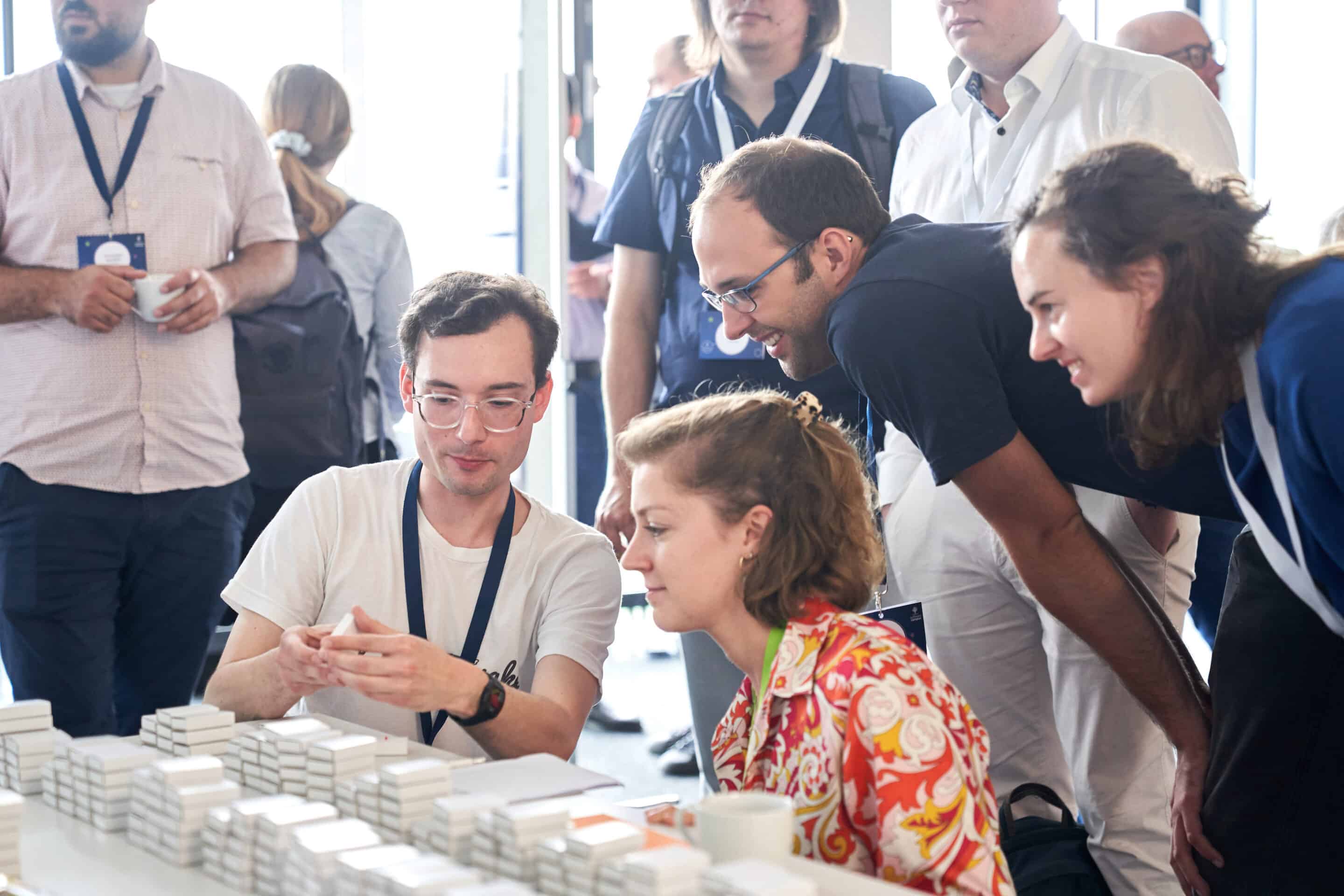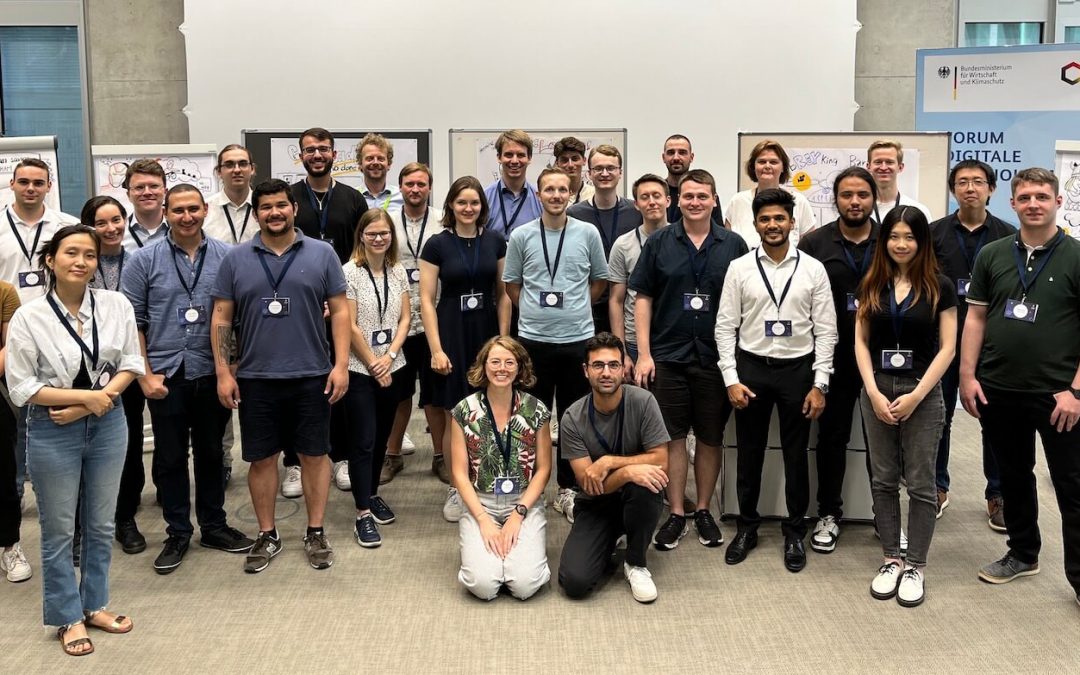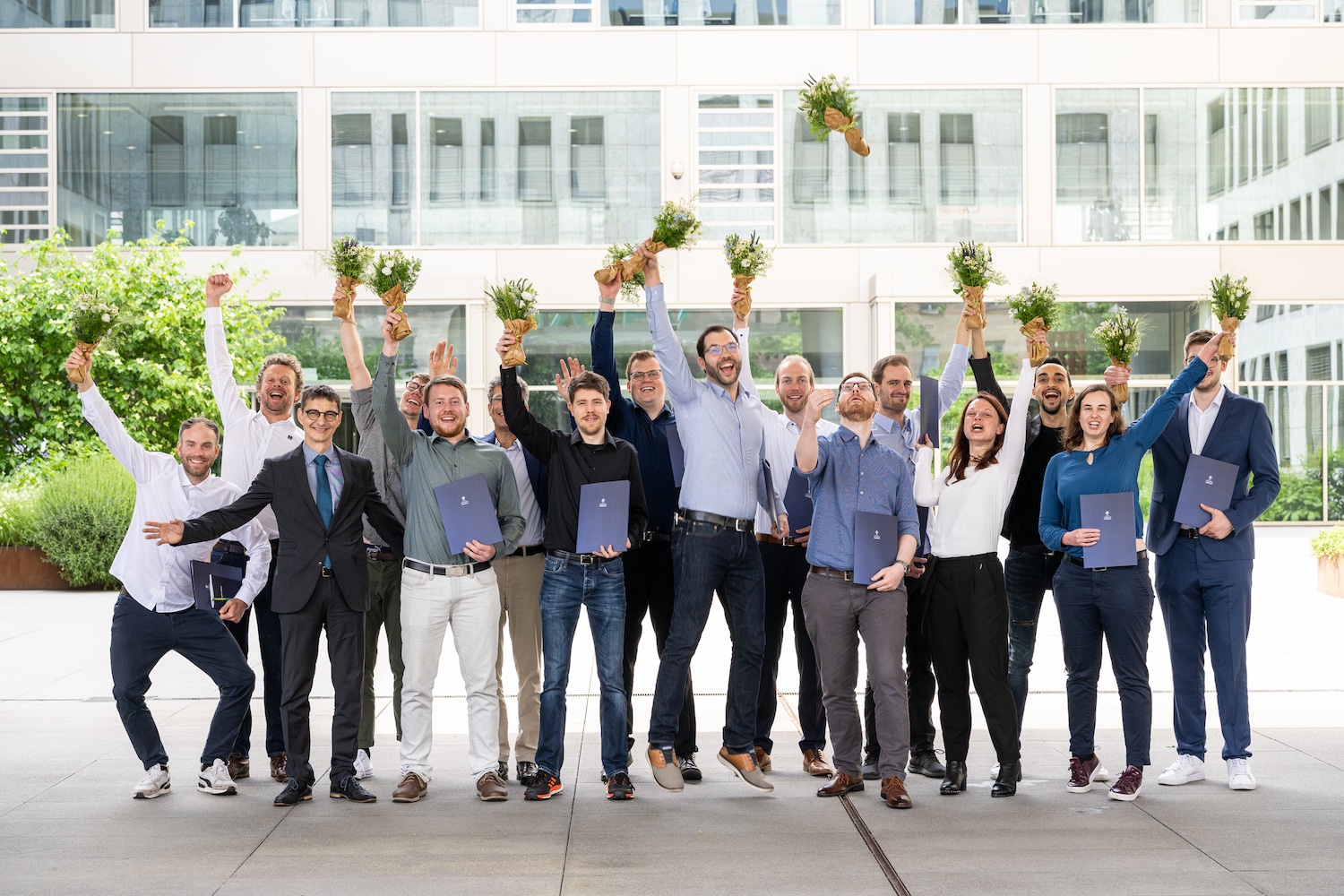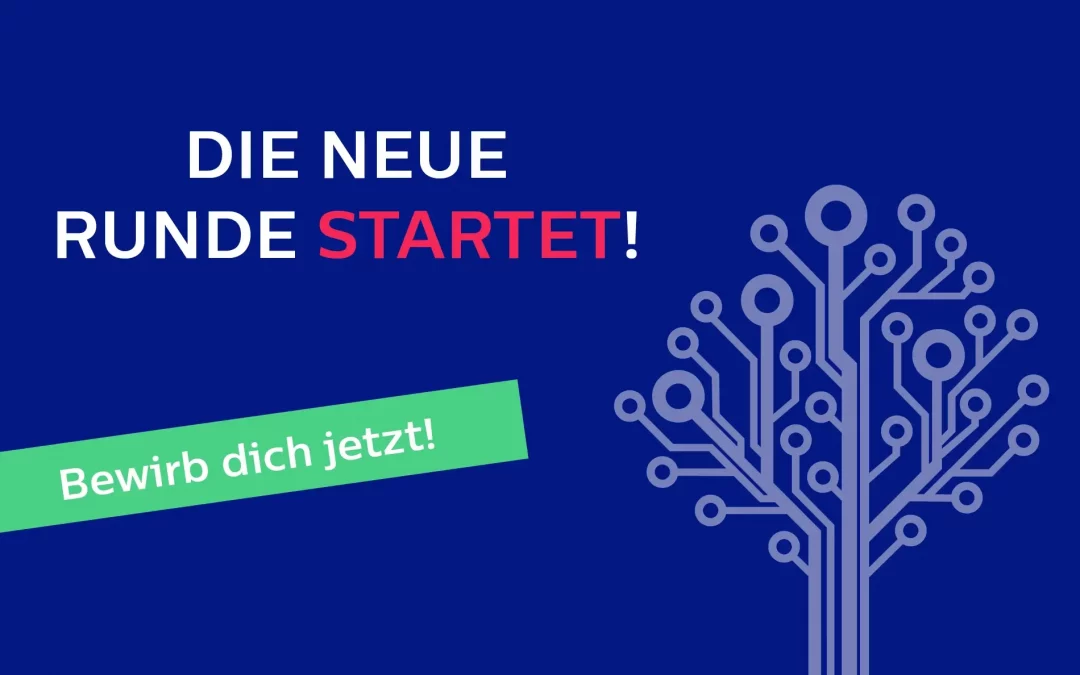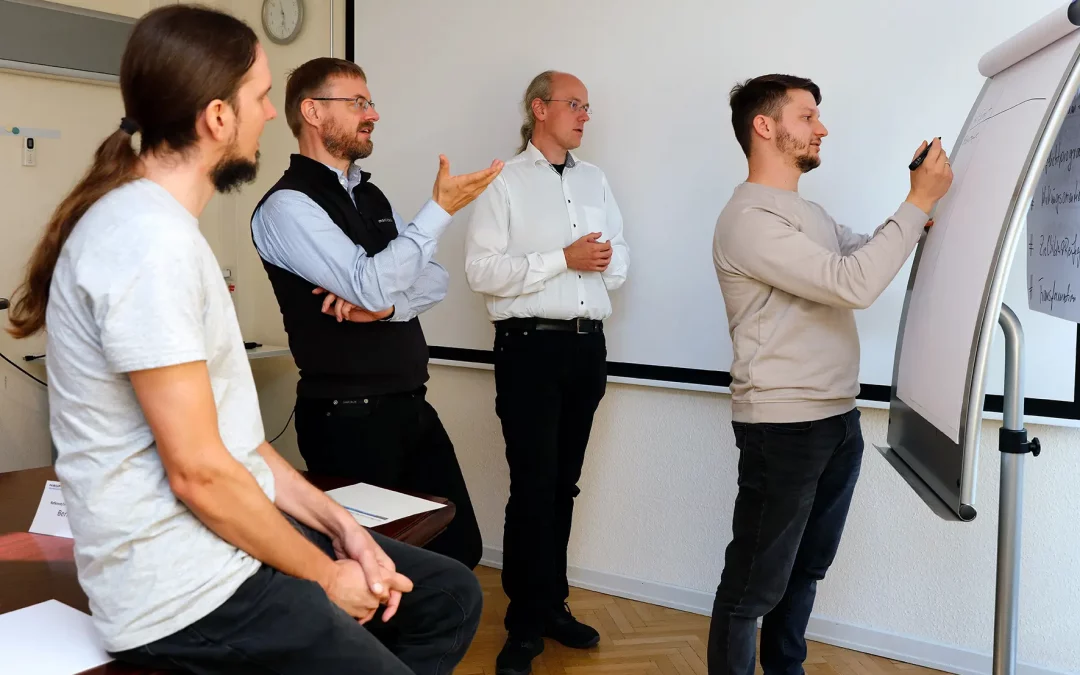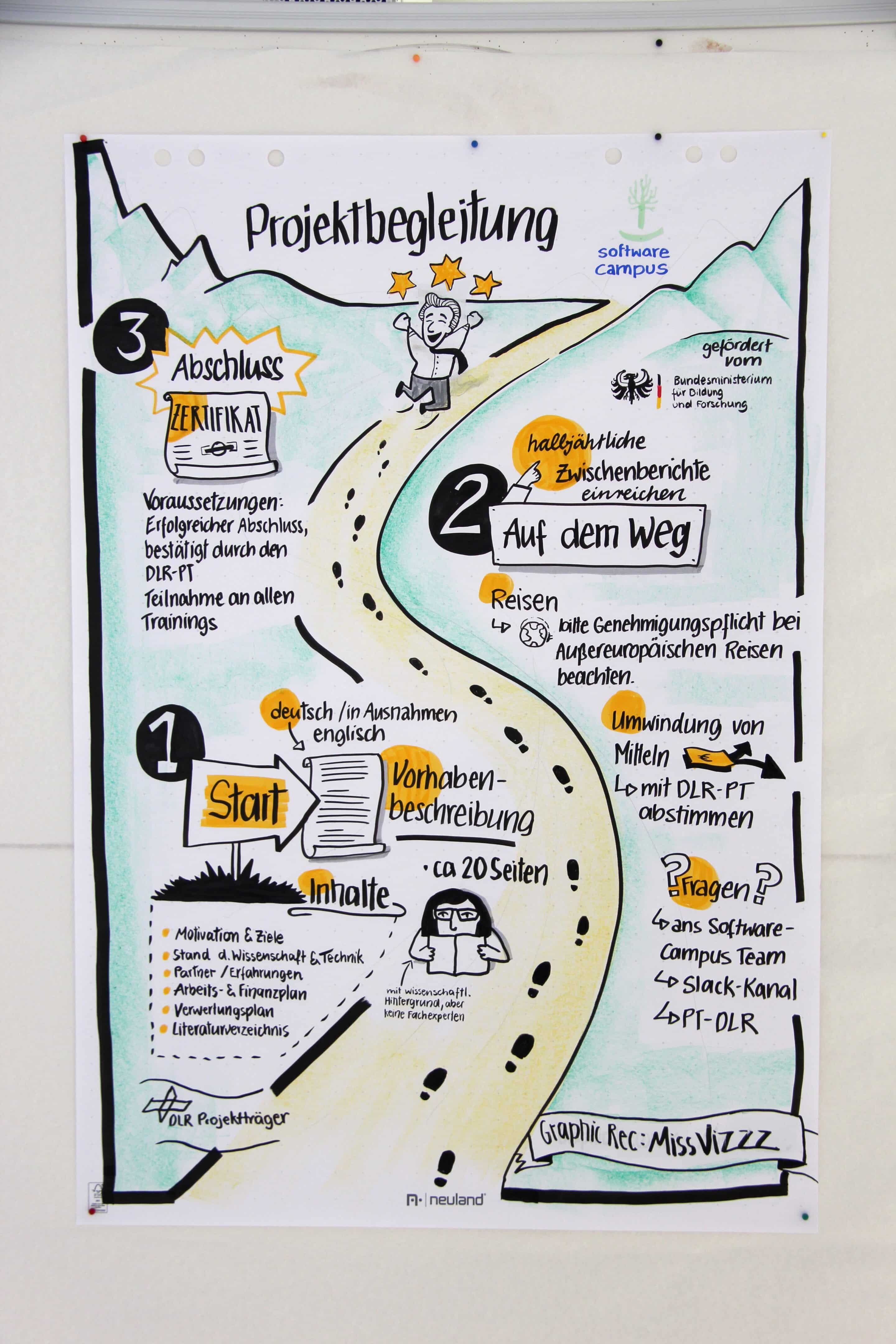In the Software Campus team, we are aware of the gender1 imbalance in IT and in leadership positions in general and would like to create an open and inclusive atmosphere for all within the framework of the program and offer our participants space for exchange. As potential IT leaders of tomorrow, we would like to raise our participants’ awareness of these issues in a sustainable way. Therefore, we plan to offer a new training course from 2021 onwards, which aims to create awareness of existing inequalities and to teach participants how to put together diverse teams as a core competence of executives.
Furthermore, we would like to talk about experiences, structures and mechanisms. Let’s start with a conversation about Male Allyship: How can men actively be allies of women to draw attention to gender-related injustices and counteract them in the sense of the common goal – equality.
In this interview, we talk to Julia (her profile here) and Florian (info on his research project here), a current participant and a graduate of the program. In this interview, we talk to Julia (her profile here) and Florian (info on his research project here), a current participant and a graduate of the program. For several years the topics of equality, gender justice and diversity have been very present for both of them, although they are each active in different areas. Julia is doing her PhD at the TU Munich, is a member of the “Junge Akademie” of the Academy of Sciences and Literature Mainz and has a scholarship from the German National Academic Foundation, where she also regularly serves on selection committees. Florian was managing director of the House of IT and is now a head of degree program and lecturer at Provadis School of International Management and Technology and also teaches computer science in the senior classes (Oberstufe) at St. Ursula-Highschool.
Software Campus: Julia, as a woman in computer science, what structural changes would you like to see?
Julia: First of all, an awareness of the fact that women make up 50% of the population, but we only have 10-20% women in IT or in leadership positions. And then make that a topic as often as possible: What is the reason why there are not 50% women at panel discussions, at workshops, in the student body, etc.? Secondly, I would like to see that whenever the stereotype is voiced that women are more hard-working, neater, more structured – that a man asks: isn’t that a stereotype here? This way it is not always up to women to point it out. Sometimes we are so firmly entrenched in these roles that we don’t even question them.
Software Campus: Florian, where would you start?
Florian: Two starting points can be identified here: Where we are right now and where the causes are. I’m a fan of tackling causes, even though that means we probably won’t see the effects for another 20 years. Unfortunately! But that doesn’t excuse us from the duty to address inequality here and now as well. In spite of everything, I believe that tackling the causes is more sustainable than always just poking at the problem for the foreseeable future. My experience at school is that these stereotypes are already formed in the senior classes at the latest. What can parents do to at least not encourage the development of stereotypes?
Julia: Select children’s books critically. For example, there is the online shop Tebalou, which has children’s toys trying to depict our society as realistically as possible. With BIPoC2, with people with disabilities and so on. Otherwise, if you look at children’s books, the characters are often stereotypical. Alternatives are, for example, “Goodnight Stories for Rebel Girls” (Elena Favilli and Francesca Cavallo). Or “Stories for Boys Who Dare to be Different” (Ben Brooks)3. With films and series, too, the choice should be made critically and discussed with the children: Is that how you perceive it? Do you think a girl could have done that aswell? Do you think they all look like you or different? Consciousness of the fact that there are injustices has to start with the parents.
These two approaches – addressing the cause as well as the current problem – must go hand in hand to raise awareness among parents and children alike. Then kindergarten and school have to take it further: School must be anti-racist, school must be anti-sexist and inclusive. This way, it can be communicated that it is completely independent of external characteristics what a person is like and what he or she can achieve. Only then will we reach the point where stereotypes play no role in later career choices.
Software Campus: Speaking of stereotypes – Florian, how do you think we can deal with them?
Florian:My former colleague Kathrin Egger at Digital Media Women once said: “Guys, why don’t you break through such behavioural patterns and see where they come from? If only men speak at an event, just say: Hey, you have a lot of men here, how about inviting that woman, that one or that one? And my personal experience, which I made at the House of IT: This obstacle is incredibly low. If you just start with that, then it becomes clear that instead of a male speaker, a female speaker is just as good or maybe even better or brings a new aspect to the discussion, simply because the horizon is made broader. This is how we managed it together in my time at the House of IT that we had a female speaker quota of well over 50% at all our important events. I believe that a non-confrontational approach is much more successful than the accusation: You are sexist and you are blocking everything here, you are trying to protect your own position because you are afraid of us trying something new.
Julia: In my opinion, however, we still have to clearly name the problem of society as a whole. Two questions are crucial: How do we help the people who are in this system now? And how can we change the school/kindergarten system so that it is fair for all people? Very often, gender equality work is portrayed as simply wanting to eradicate all the old images of society. But it is about giving each person the freedom to decide for themselves what fits best. And that is about presenting opportunities for everyone, including those who benefit from the system. More possibilities for men can mean that they are allowed to cry, to be tender with each other in the same way that women often are. That they can seek help, that they don’t always have to be the strong ones, not the providers of the family. This could also be a positive image and a liberation for men.
Pointing out alternatives is great, but in my opinion wrong behaviour must be clearly addressed at the same time. The important thing is that it’s not about the person. If someone says: “but I don’t want to be sexist” or “I’m not a sexist” or “I’m not discriminating”, then you can reply: “It’s not about you as a person, but that you said something that hurt this person. The fact that it was not your intention is not being questioned”. I think we often perceive pointing out hurtful behaviour as breaking up friendships, companionships or being a colleague, and it’s not that at all. It’s about actively working towards a better relationship. Intention alone does not protect.
Software Campus: Should Male Allyship be addressed and demanded more openly or is it enough to demonstrate it?
Julia: I think it all depends on the relationship, I don’t think there is a perfect course of action. It’s a mixture.
Florian: What helps tremendously with male allyship is if there is a woman in the team who knows about gender equality. In my world, a male ally does not necessarily have to be someone who has read every book on the subject and travelled the world; a male ally has to be someone who opens up opportunities where the competent person would otherwise not have them themselves or would only have them very inconveniently. And that’s how I lived it in the House of IT.
Julia: That is an important point: opening up spaces of power where women cannot do it themselves. There are still far too many panels where no woman sits in, no Black4 person, no person with a disability. We have to consciously say: We decide in favour of diversity.
I would like to add another aspect to this: Not every woman is an expert on gender equality. Very often, a random woman is asked to speak on gender equality. That is super difficult.
Florian: That is above all stupid. It shows that one has zero understanding of the subject.
Julia: Yes! In the past two years, I have dealt with this topic a lot, but even before that, I was constantly invited somewhere to speak about women in computer science. At some point, all these invitations led me to deal with it, but there are also women who deal with exactly this and then you should also invite these female scientists. The same goes for black people, for people with disabilities. Not all of them are activists.
Florian: Wrapping up: Do you have a top advice that worked best for you?
Julia: Personally, what has helped me the most is really the aspect of intention vs. impact. Intention is not the only thing. It’s more about how the words and actions affect the other person. If you hurt another person and didn’t mean to, it’s no problem to apologise and try to do better in the future and learn from it. Many of our behaviours and attitudes are shaped by our experiences. And since the society we live in is still discriminatory, we need to actively challenge that.
What is the thing that has worked best for you, where you felt you had the most impact, away from representation? What can men do to make this better overall?
Florian: That is a difficult question to answer because all the activities I do actually start after the cause. Even senior classes – by then the child has already fallen into the well. I always make it clear to everyone that it is not a question of being a boy, being a girl, being anything else, to be successful in computer science. But this happens at a time when these people then first have to go through a self-reflection process to overcome this prejudice that has perhaps formed unconsciously. In my work as a teacher, I definitely come in too late in the lives of my students, but I make a great effort not to keep anyone away from computer science in a gender-specific way, quite the opposite. And I have the impression that the girls I teach are now more likely to think about studying computer science than they were before. But it’s up to me to speak for my students.
Julia: This is also a very important advice: don’t talk about women as if they are not there – even though they are present in the room. You have already said that you see yourself in the role of a Male Ally, to open up opportunities for women where they cannot do it themselves. I interpreted it as you saying that when women are there to speak for themselves, it is not your job to speak about women. That is a very important point in order to be perceived as a good Male Ally by women. Software Campus: Julia and Florian, thank you very much for the interview!
1 Dear non-binary reader, we refer to only two genders in many places. We know that genders are diverse, but we have chosen to focus here on the relationship between people who identify as women or men or are read as such in certain situations.
2 Stands for Black, Indigineous, People of Colour and is an often chosen self-description.
3 Another book suggestion: „Für Jungs, die anders sein wollen: 50 außergewöhnliche Männer, die die Welt verändert haben“ (Caroline Stürmer)
4 Black is meant here as a self-description.

